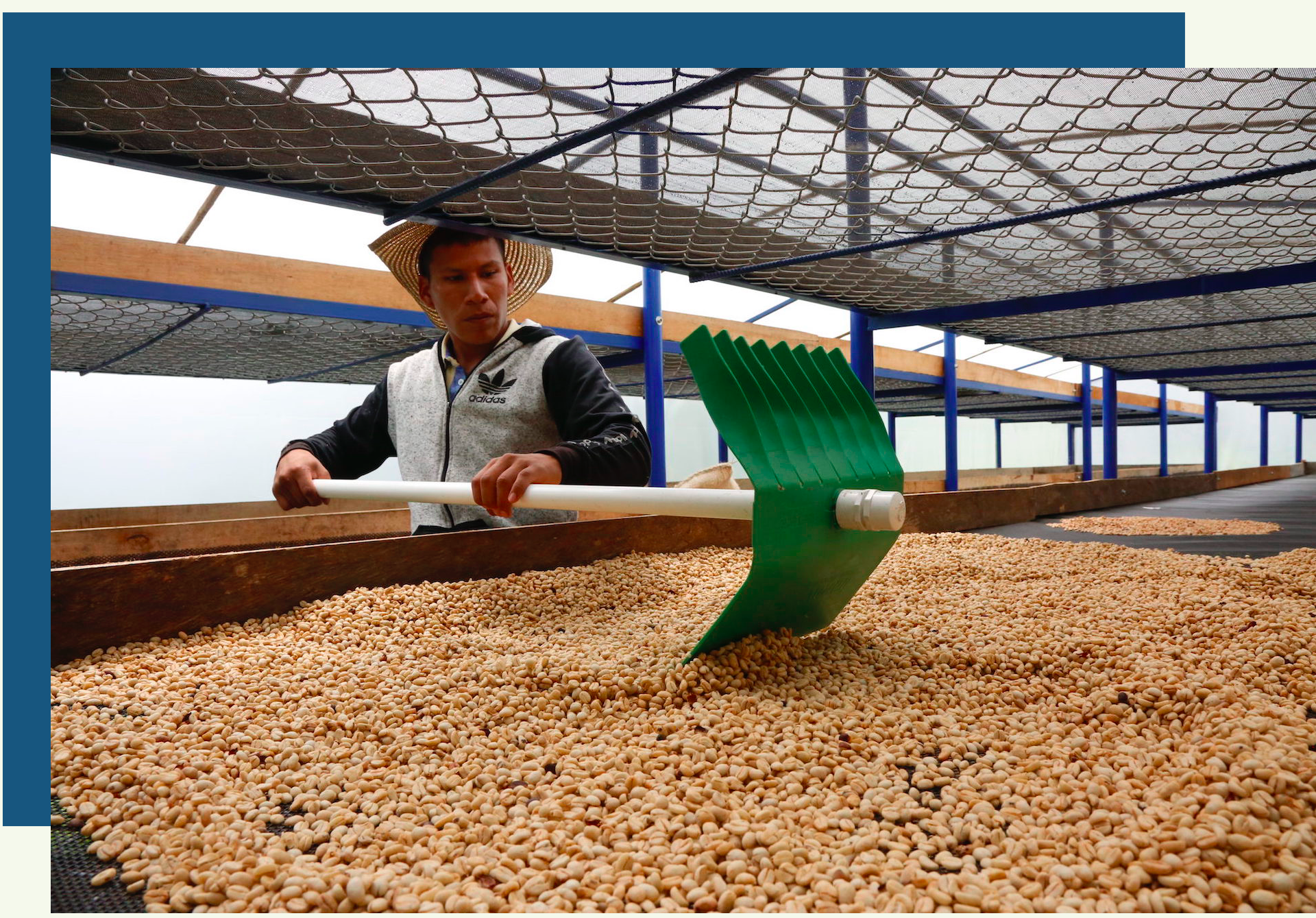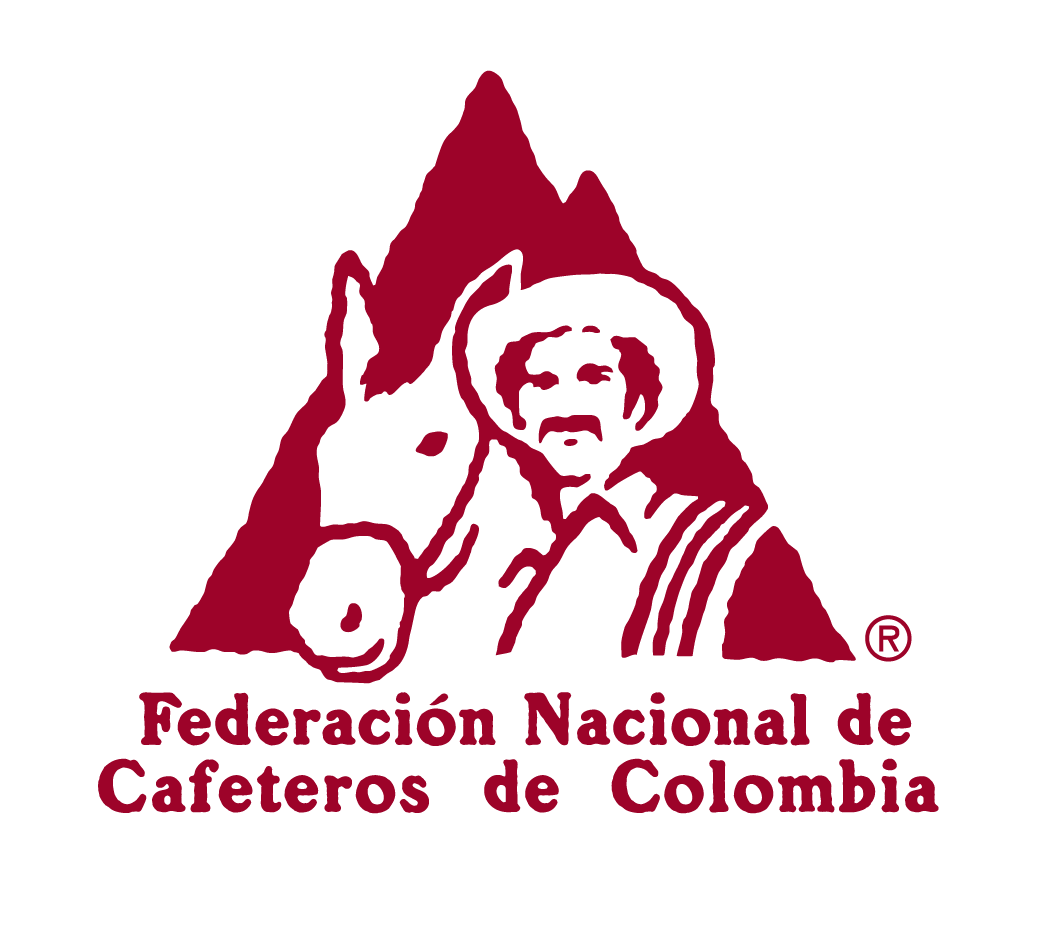The Coffee for Peace initiative in Colombia announces the release of a brand-new resource for the global coffee community: Micro-Processors 2.0, a set of posters presenting easy-to-follow information on coffee production. Coffee For Peace invites coffee buyers and farmers worldwide to download the posters below.
The posters—launched in partnership with the Colombia Coffee Growers Federation (FNC) and Coffee for Peace funder United States Agency for International Development (USAID)—cover four basic steps of coffee production: harvesting; depulping; fermenting and washing; and drying and storage. They are meant to be an accompaniment to harvest and post-harvest training: Each poster includes simple instructions for accomplishing micro-processing tasks, as well as a list of 17 best practices for coffee production.
These posters are a unique instrument to train and prepare smallholder coffee farmers in best practices for producing coffee. They are designed to be understandable regardless of literacy levels, and incorporate a clear connection between micro-processing activities and their effect on cup quality.
Willem Boot, co-founder of Coffee for Peace
The Micro-Processors best practices posters, which are in Spanish, were initially developed for smallholder coffee producers in the six regions of Meta, Caqueta, Cauca, Valle de Cauca, Antioquia and Sur de Bolivar where Coffee for Peace operates. The initiative works in historic violent zones in the country to develop, facilitate, and promote the trade of traceable coffees to make specialty coffee a key component in the transition to peace. With this international release, the posters are being made available to the FNC’s network of coffee producers throughout Colombia, via the Coffee for Peace website below.
We are very happy to make these tools available to coffee producers. It is the producers’ dedication and hard work that result in high-quality coffee, and the use of these post-harvesting tools will help them improve quality and consistency, adding more value to their product.
Juan Camilo Ramos, Chief Commercial Officer of the FNC


The Creation of the Posters
The new posters are the result of a years-long process of development. In 2017, the Producers to Markets Alliance (PMA)—the project behind the Coffee for Peace brand—conducted a diagnostic of coffee production and quality in the Colombian coffee-producing regions of Antioquia, Bolivar, Caquetá, Cauca, Valle de Cauca, and Meta where Coffee for Peace would later operate. The diagnostic found that over 90% of the beneficiary farmers in the project lacked a clear understanding of common harvest and processing best practices. This information gap was confirmed by the physical evaluation and cupping of more than 400 samples, which revealed a significant amount of processing errors—the result of years of marginalization due to decades of violence in these farmers’ areas.
In response to the results of the diagnostic, PMA contracted the Coffee Quality Institute to co-create the Micro-Processors program, which formed a technical committee including processing experts from Fintrac Inc. and Boot Coffee (both members of PMA), as well as the FNC Cauca Committee and TECNICAFÉ. The group created the first version of the 25 best practices later featured in the posters.
PMA piloted these best practices by educating micro-processing trainers embedded in 13 farmer organizations in the six regions of the project’s activities. These trainers provided one-day workshops to 2,600 farmers, 600 of whom were then evaluated for their implementation and competency of the best practices. Fifty-nine percent of the farmers passed the baseline evaluation, and the cup quality of their coffee increased by more than two points.
Following these results, in 2019 PMA joined with the FNC and its scientific research arm Cenicafé to review and improve the Micro-Processors best practices for a wider audience.
This collaborative process incorporated two technical committees of coffee professionals thoroughly trained in post-harvest practices. This collaboration led to the creation of the 17 Micro-Processors 2.0 best practices and corresponding posters that are now being released to a wider audience.
Posters’ Release
The posters will soon be complemented by a digital educational system that Coffee for Peace and the FNC plan to release later this year. The system will include coffee production manuals, “train the trainer” tools, and video tutorials.
The Coffee for Peace program has made important strides in introducing Colombian growers to the tools needed to produce quality coffee. These posters are an important piece of that, and now we’re excited to share them with more coffee professionals who can realize their benefits.
KC O’Keefe, consultant for PMA-USAID



